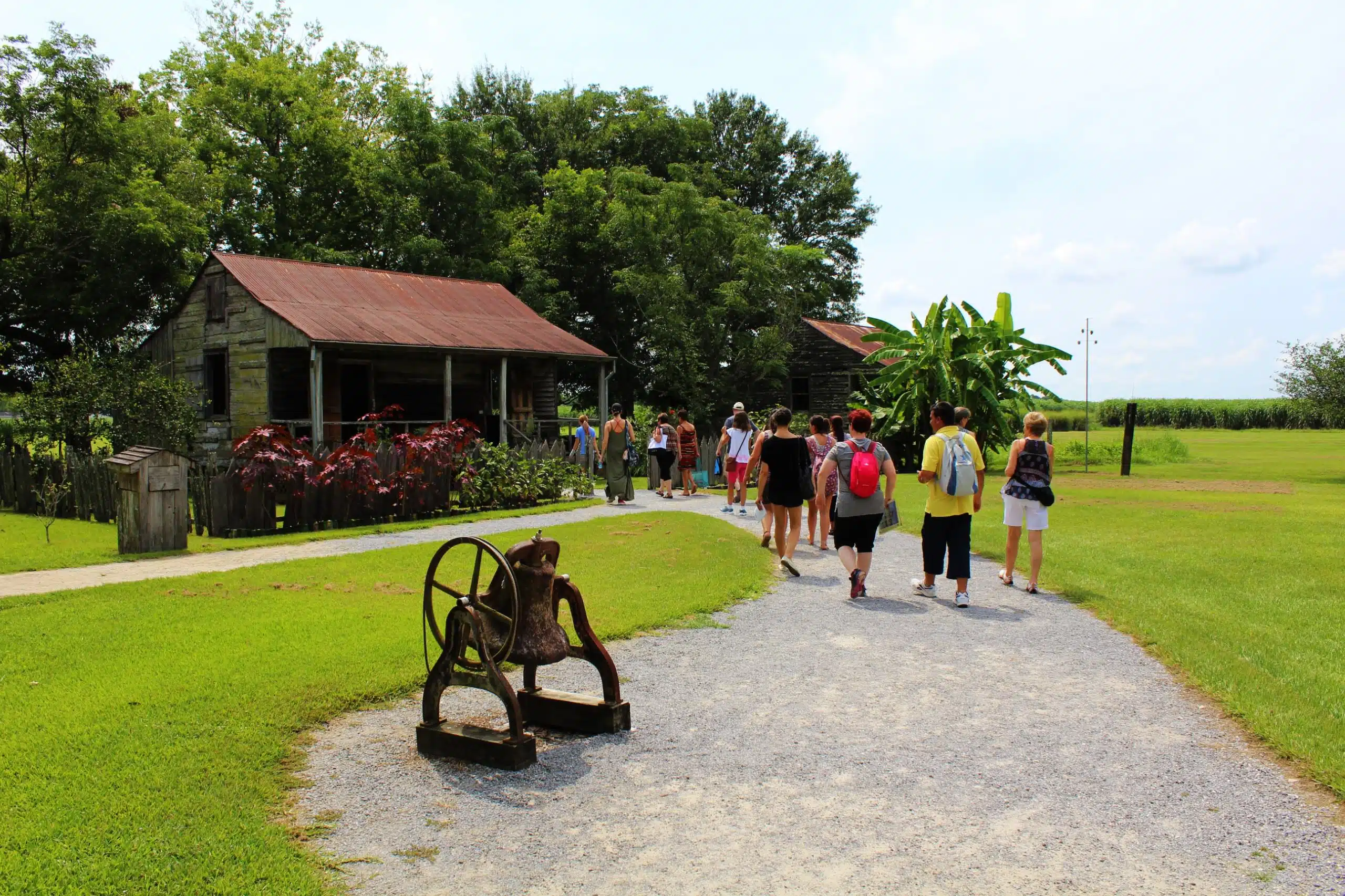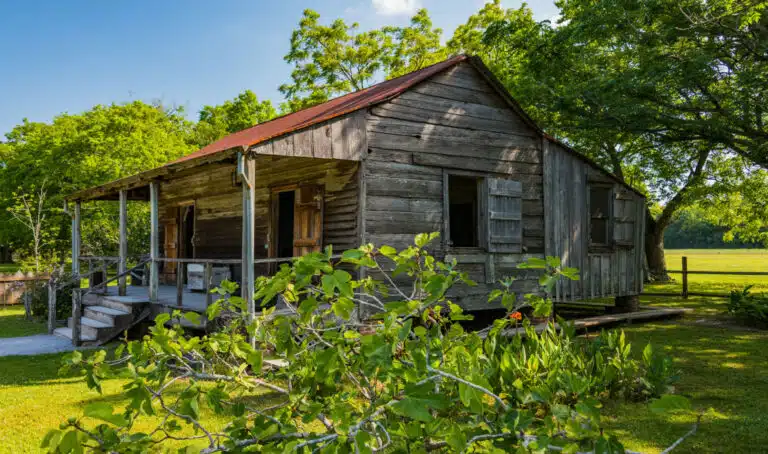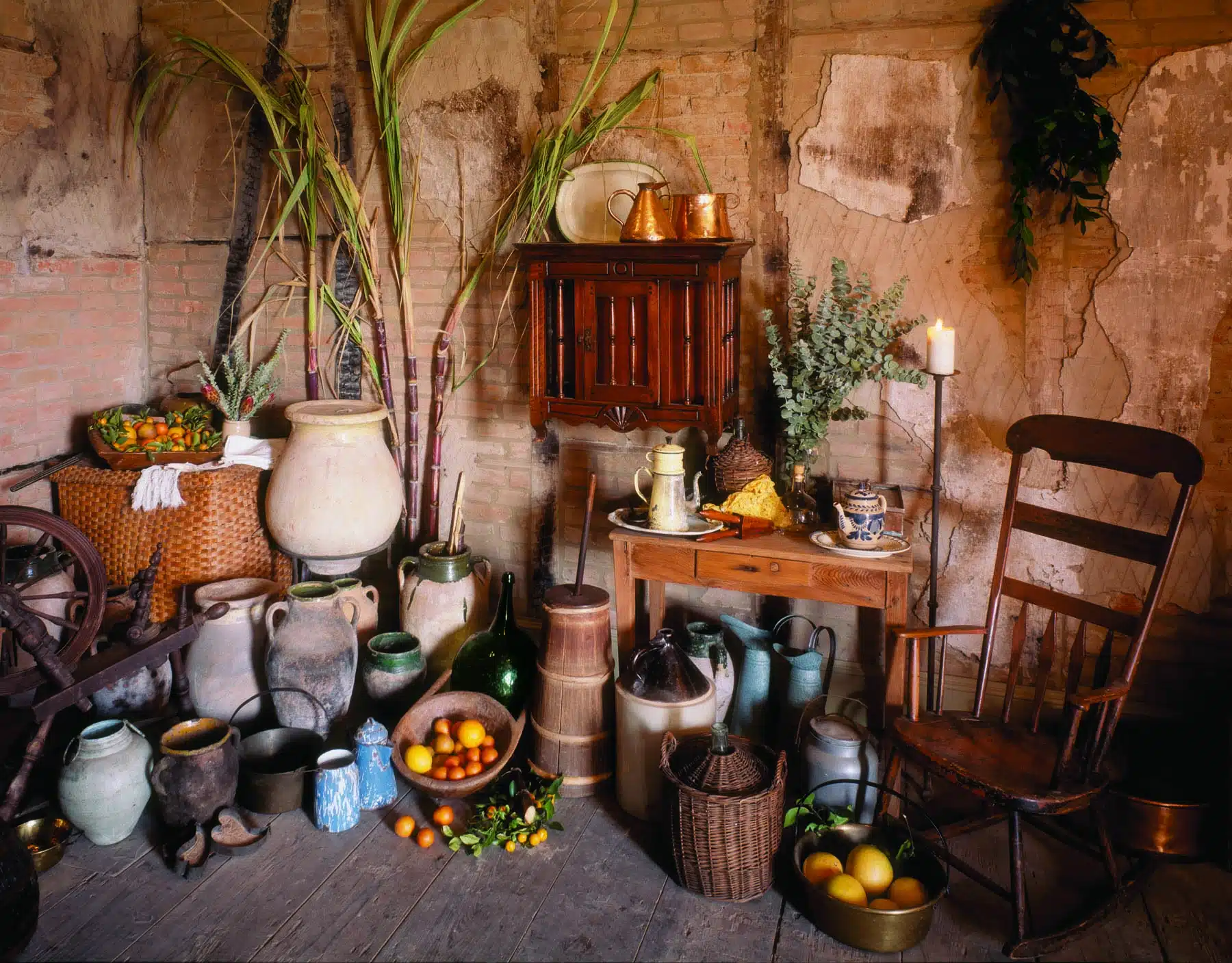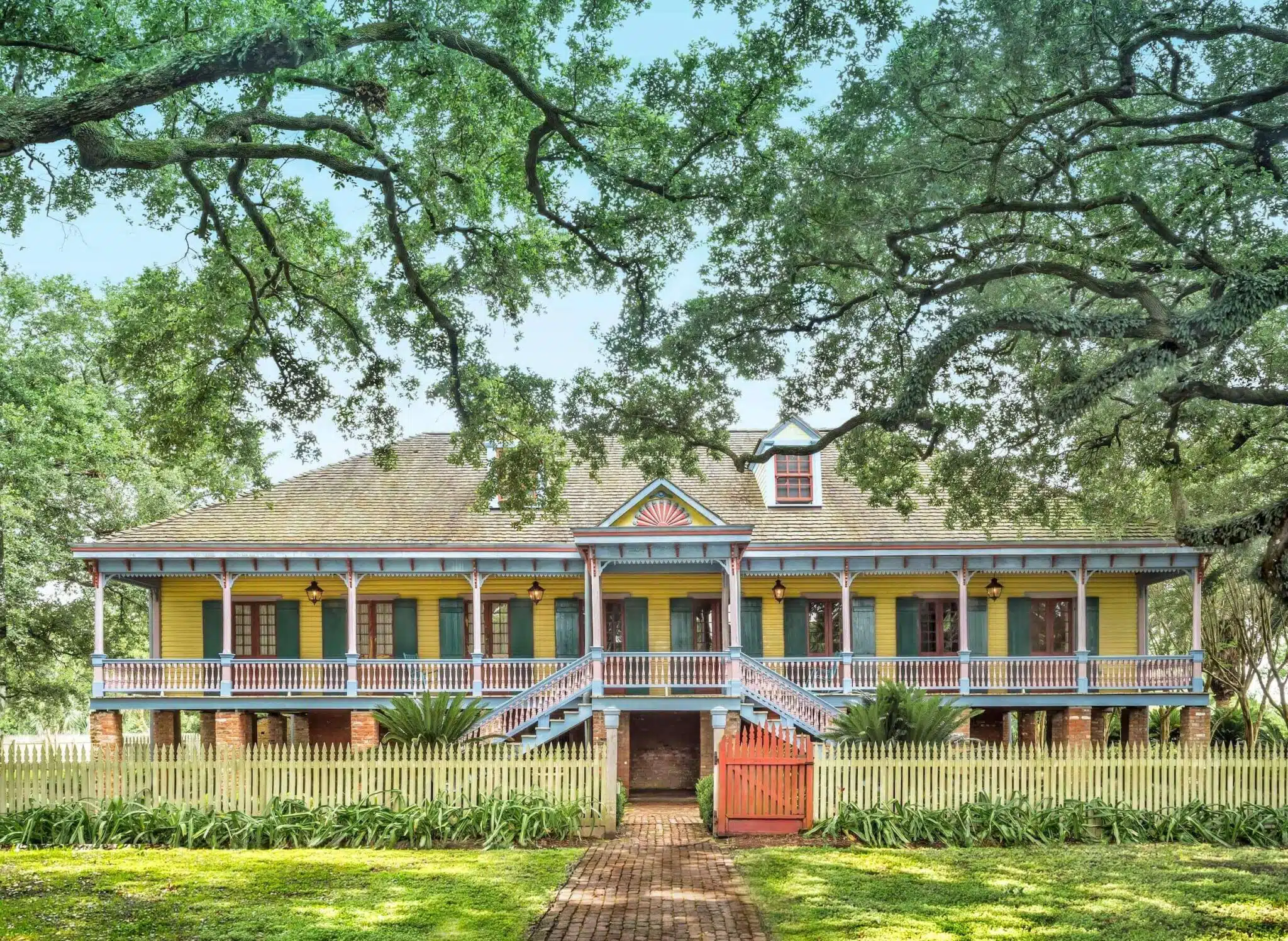

Laura Plantation Tour
Laura Plantation has a rich and unique history, from the home itself to the stories of the women who ran it. As you walk through the house, banana grove, garden, and slave quarters, you'll glimpse the plantation as it looked over 200 years ago, with period furnishings and photos of its original residents. Initially built and run by a French Creole family, Laura Plantation later passed to a German family who ran it for nearly 100 years. Stories by a West African freedman in the 1870s, “Compair Lapin & Compair Bouki” (known in English as “Tales of Br'er Rabbit”), were recorded in the original 1840s slave cabins.
Our Plantation Tours
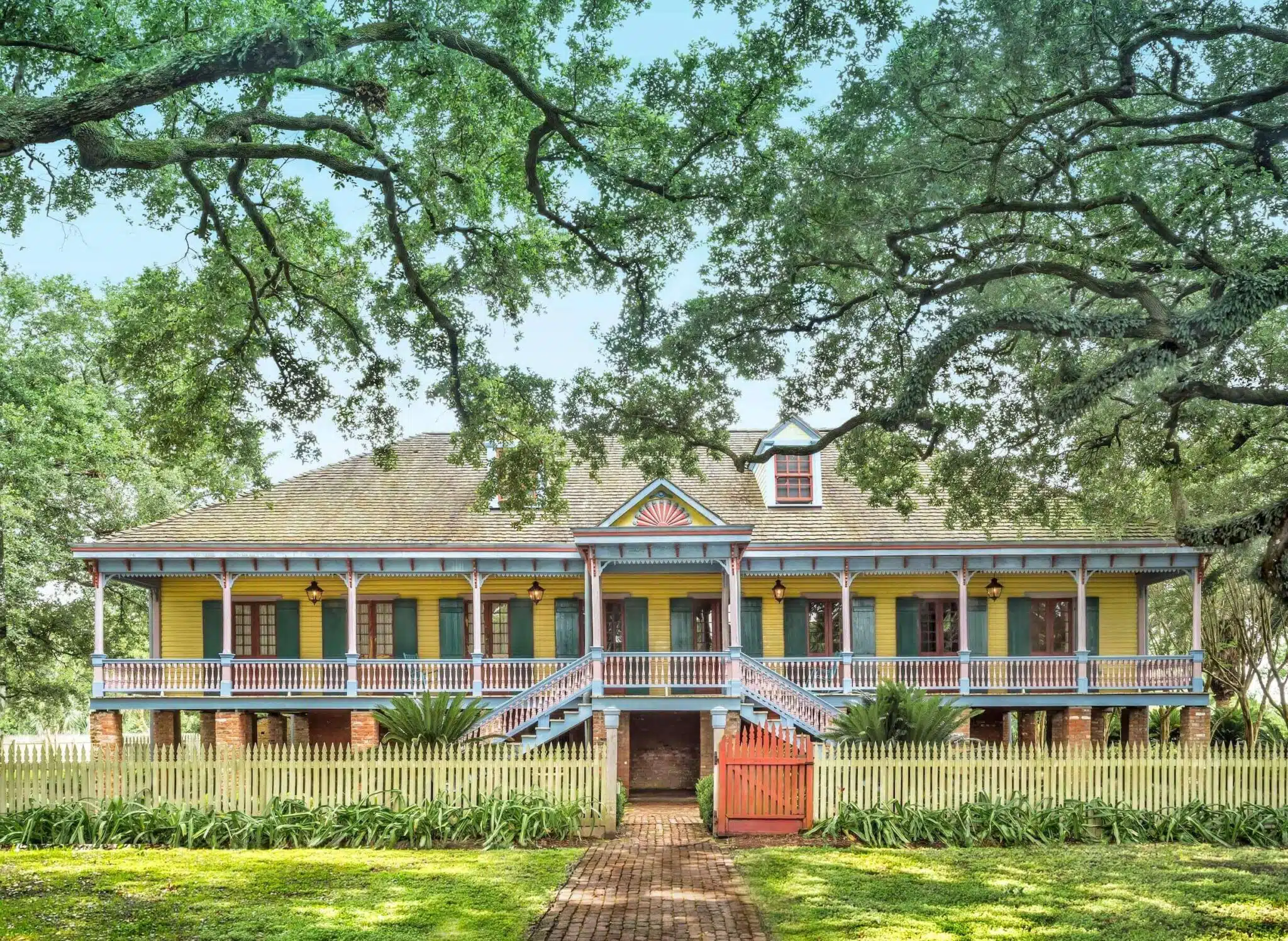
Laura & Oak Alley Tour
Join us on a unique journey through the contrasting histories of Laura and Oak Alley Plantations. At Laura Plantation, experience the vibrant Creole culture and personal stories of its residents. Then, be awed by Oak Alley’s beauty.
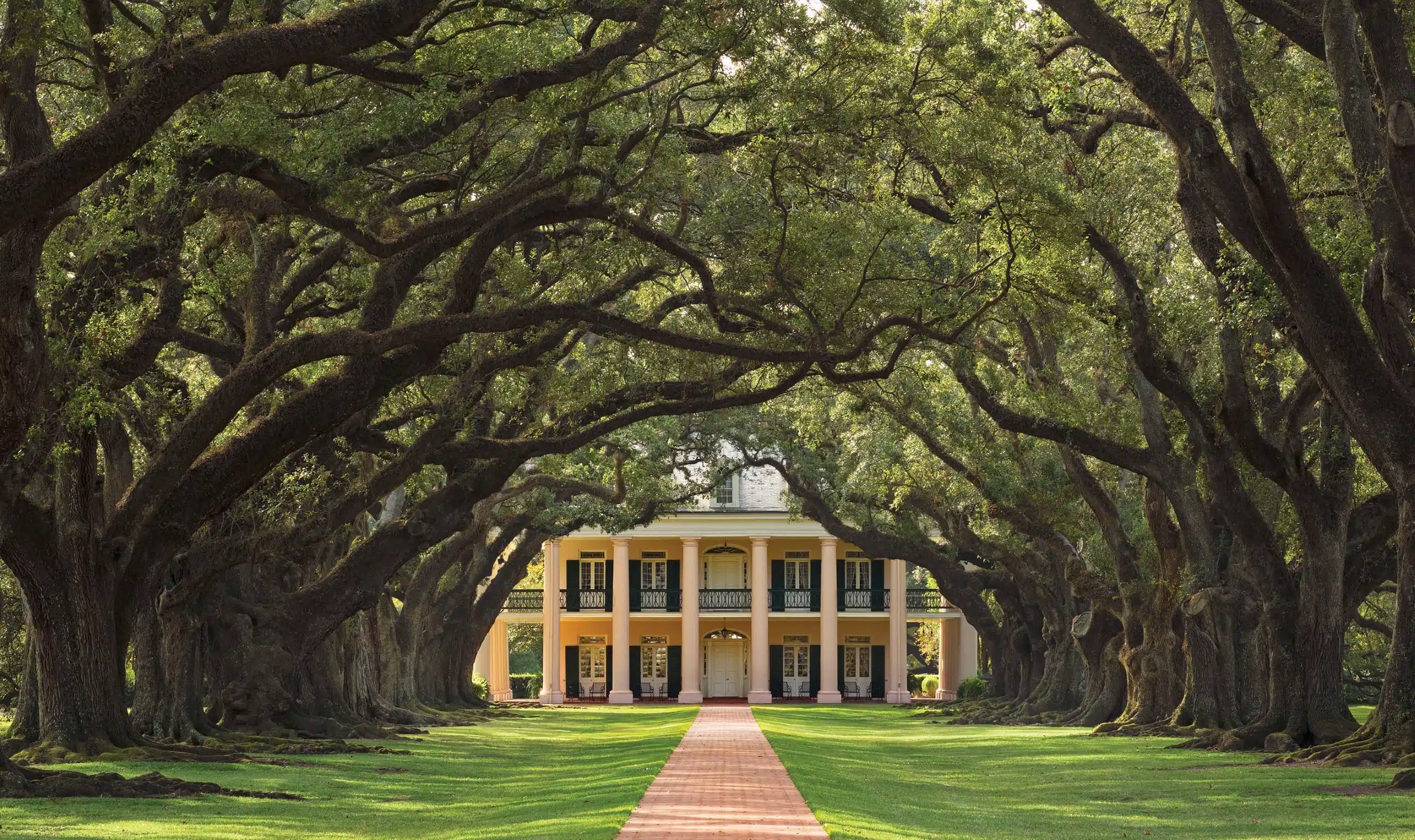
Oak Alley Plantation Tour
Uncover the rich history of Oak Alley Plantation on our exclusive tour. Stroll through the majestic oak-lined pathways and explore the grand mansion, surrounded by stunning landscapes that highlight the beauty of this iconic estate.
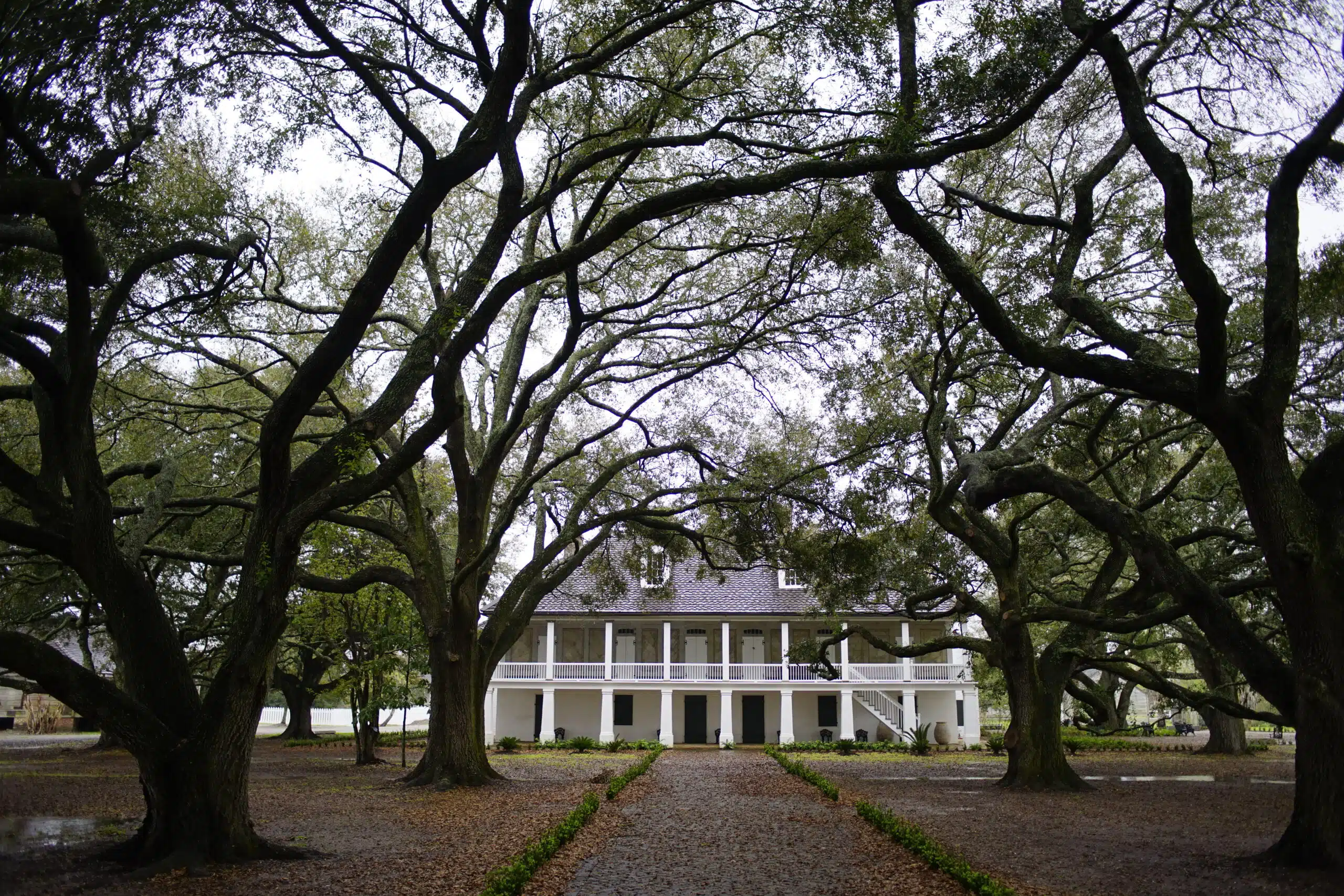
Whitney Plantation Tour
Delve into the deep and powerful history of Whitney Plantation with our immersive tour. Engage with thought-provoking exhibits and well-preserved structures that vividly portray the lives and stories of the enslaved people who lived here.

Laura & Oak Alley Tour
Join us on a unique journey through the contrasting histories of Laura and Oak Alley Plantations. At Laura Plantation, experience the vibrant Creole culture and personal stories of its residents. Then, be awed by Oak Alley’s beauty.

Oak Alley Plantation Tour
Uncover the rich history of Oak Alley Plantation on our exclusive tour. Stroll through the majestic oak-lined pathways and explore the grand mansion, surrounded by stunning landscapes that highlight the beauty of this iconic estate.

Whitney Plantation Tour
Delve into the deep and powerful history of Whitney Plantation with our immersive tour. Engage with thought-provoking exhibits and well-preserved structures that vividly portray the lives and stories of the enslaved people who lived here.
Learn the history of laura plantation!
What You'll See
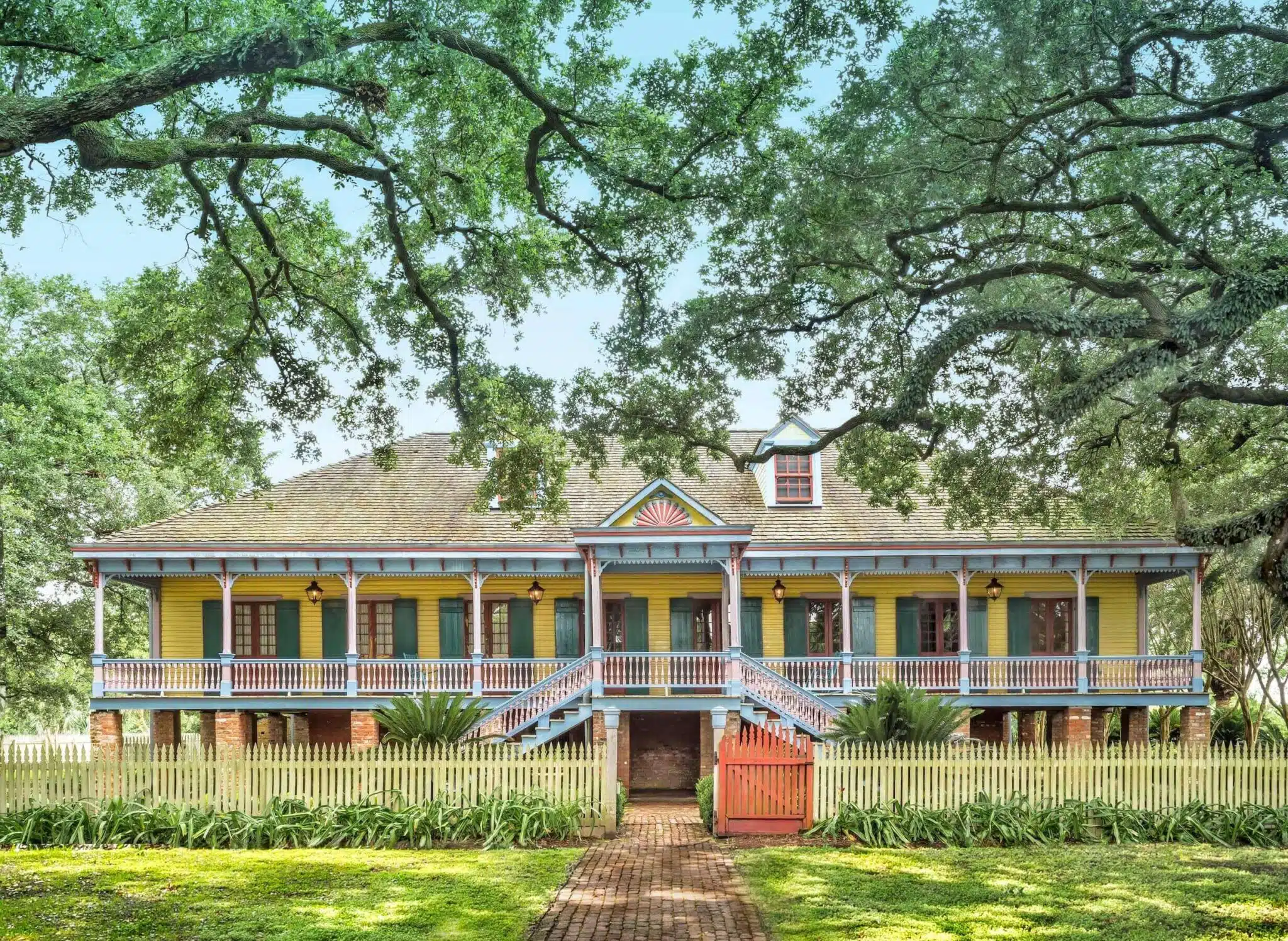
A Historic Home
Delve deeply into the history of Laura Plantation by exploring its meticulously restored main house. Each room is adorned with authentic period furnishings and artifacts that vividly depict the lives and customs of the Creole families who resided here. The house is not just a dwelling but a rich narrative of the plantation's storied past, offering an intimate look at the daily lives, traditions, and personal stories of its former inhabitants.
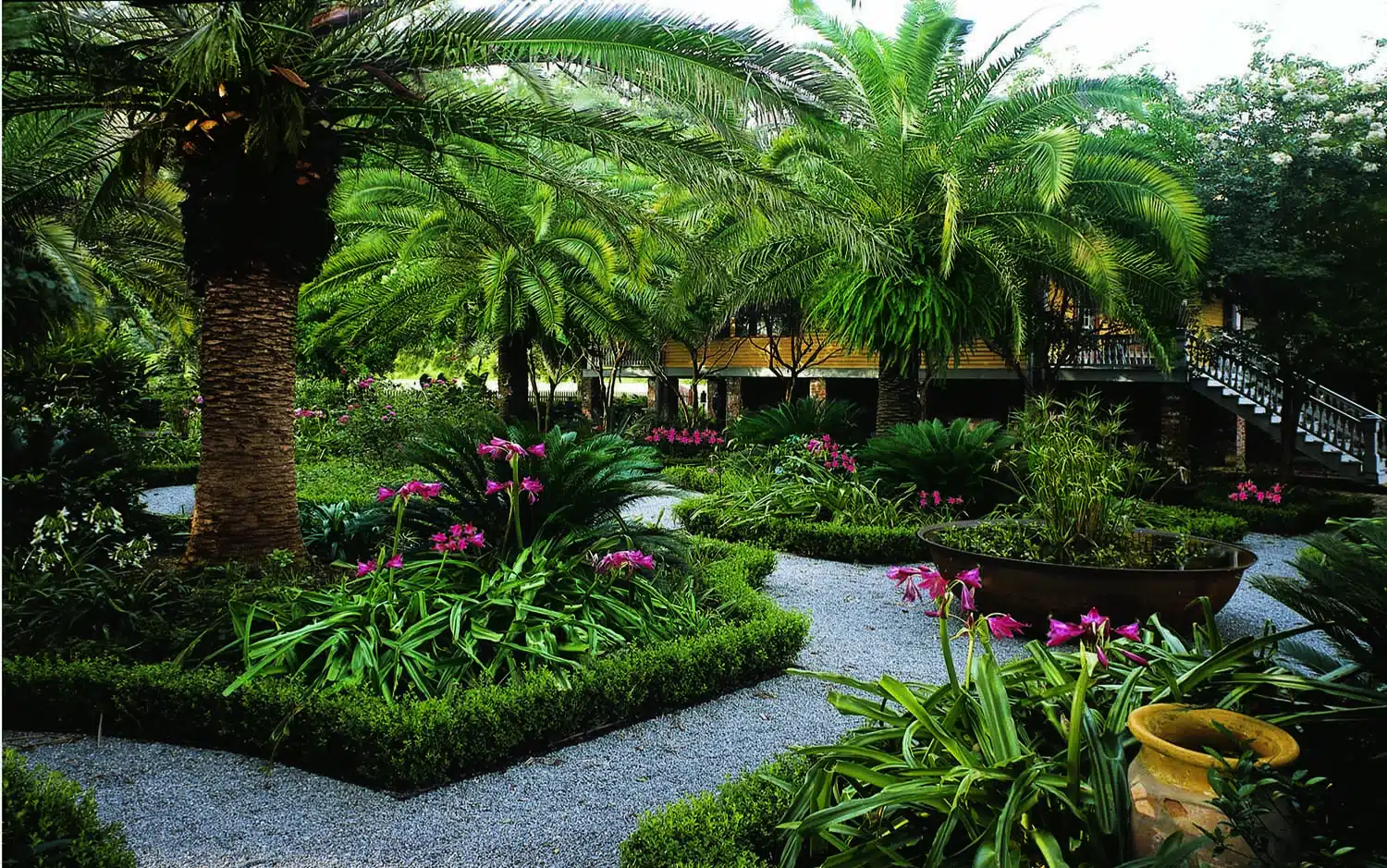
Banana Grove & Gardens
Take a leisurely stroll through the plantation's lush gardens and banana grove. This verdant area showcases the agricultural practices of the 19th century, illustrating how the plantation thrived and contributed to the local economy. The gardens are a peaceful haven filled with a variety of plants, each with its own historical significance, providing a serene and educational experience that connects visitors with the land’s past.
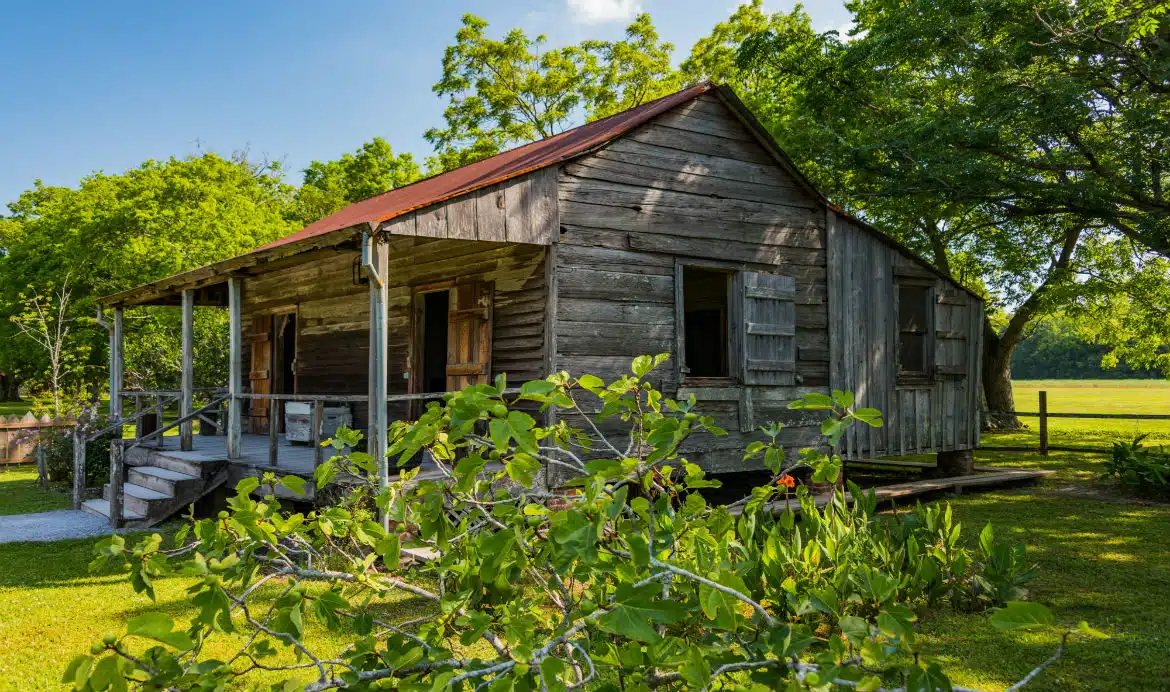
Slave Quarters
Visit the preserved slave quarters, a deeply moving part of the plantation that tells the poignant stories of the enslaved individuals who lived and worked here. These quarters are not only historical relics but also the birthplace of the famous 'Tales of Br'er Rabbit,' recorded in these very cabins. This area offers a powerful, educational insight into the lives, struggles, and resilience of the enslaved people, making their stories an integral part of the plantation's history.
Plantation Tour Times
Plantation tours depart daily at 10:00 AM for both the Oak Alley Plantation Tour and the Oak Alley & Laura Plantation Combo Tour and at 1:00 PM for the Whitney Plantation Tour. For your convenience, all tours include pickup from select hotels in the French Quarter and downtown New Orleans.
- Oak Alley Plantation Tour and the Oak Alley & Laura Plantation Combo Tour: Please be ready at your designated pickup location at 9:30 AM to ensure a smooth and timely experience.
- Whitney Plantation Tour: Please be ready at your designated pickup location at 12:30 PM to ensure a smooth and timely experience

Hear from our customers
61,000 5-Star Google Reviews




We did the Oak Alley Plantation Tour and thoroughly enjoyed our experience. Driver Steve was engaging and provided interesting details about New Orleans along the drive to the Plantation. He made the trip very comfortable and fun and gave great tips about the onsite restaurant which was DELICIOUS ! Hotel pick up and drop.off was a breeze. At the Plantation, our guide Julie was so full of information and the history of the Plantation and owners. She took time to answer our questions and was a pleasure to have guide us. A beautiful and enjoyable day experiencing this piece of history. Highly recommend this tour as well as Cajun Encounters.





I booked the plantation experience - Laura and Oak Valley - and it’s really worth booking both tours as there is a lot to contrast. Both places are worth doing and Cajun Encounters were excellent. Our guide Derek was at the collection point on time, he gave us very informative commentary on the way to Laura (inc where to eat / not eat in NOLA!) and dropped us to Laura (highly recommended tour!) and was awaiting us when we were finished and straight onto Oak Alley (very interesting but a bit slicker). The whole experience went seamlessly and id definitely book a city tour or swamp tour with them next!





We took the combo plantation tour and spent the day at the Laura Plantation and Oak Alley Plantation. It was a memorable and informative day well spent. Dee was our driver and we learned so much more about New Orleans and points along the way. Very enjoyable day!





We had a great experience visiting the Laura and Oak Alley Plantations. Transportation was A+ and our driver was awesome. We highly recommend this tour.





Derek, our tour guide driver, gave us awesome insight and history on the city as we drove to Oak Alley Plantation. He was very kind and knowledgeable. Oak Alley was beautiful and intriguing and included a guided big house tour. Staff throughout the plantation were very very kind as well (tour guide and waitress at the restaurant).





First, our driver, Michelle was friendly, personable and provided interesting general history of New Orleans as we drove out to the plantations. She made it so much fun!!I really enjoyed my tour of the Alley Oak and Laura Plantations. They were very interesting and I learned so much about the plantation and life on the plantation for not only the owners but also the enslaved.The grounds at both plantations were absolutely gorgeous. The guides were very knowledgeable. The yours were timed appropriately. Although sad, it was interesting to learn the history of these two plantations. A huge “Thank You” to Michelle for making our ride to and from enjoyable.





Had a fantastic time on my Laura and Oak Alley Plantation tours yesterday, I would not have done the Laura tour until Justine recommended it. Actually Laura was much more informative than Oak Alley. I really enjoyed both. Justine was an excellent driver.
Transportation Details
- Please note that transportation is included for all of our plantation tours.
- Our drivers only pick-up from the locations listed here. Requests for other locations cannot be accommodated.
- The trip from New Orleans to the plantations is around one hour.
- After your tour, we will return you to your designated pick up location.
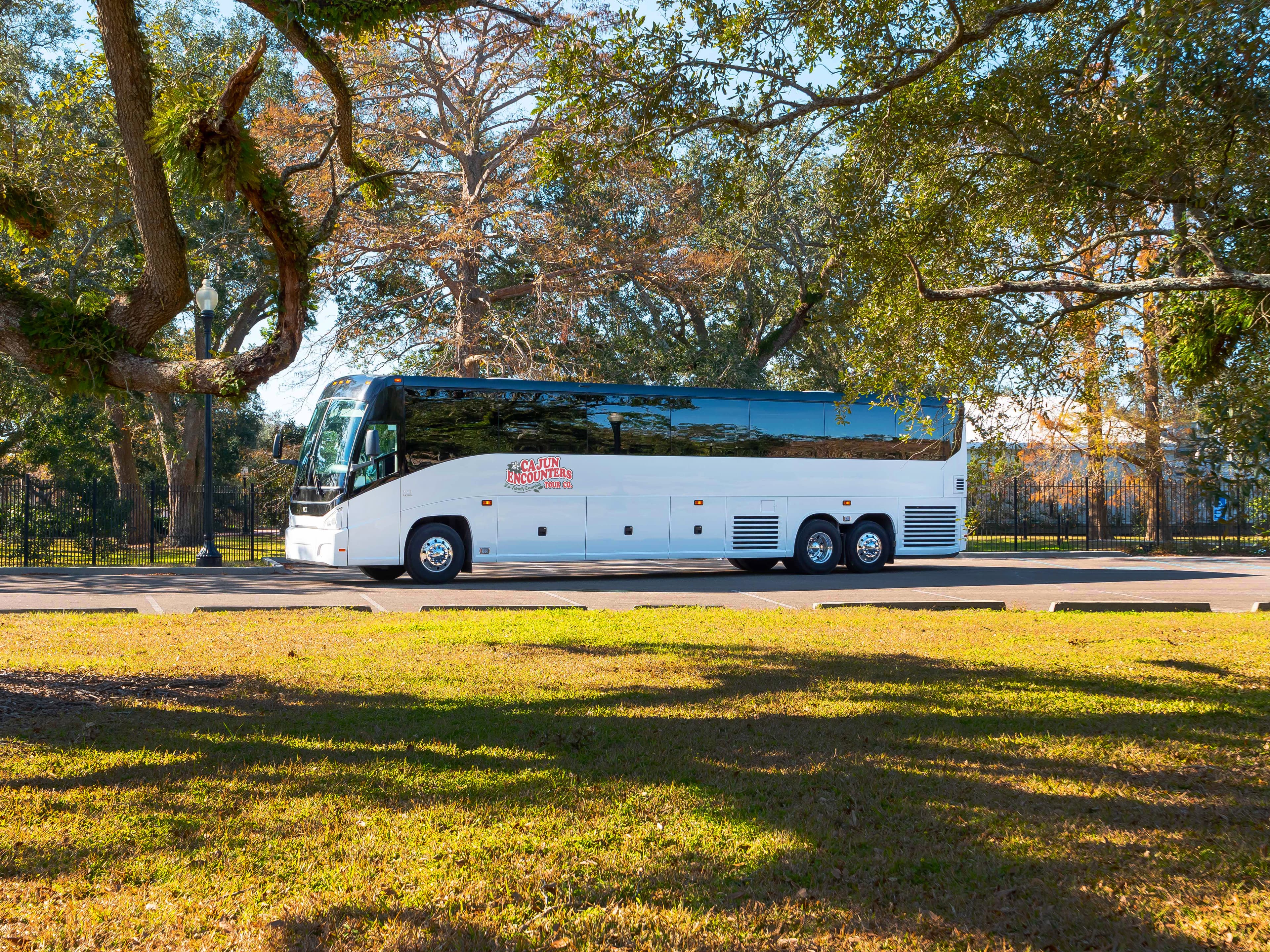
Frequently Asked Questions
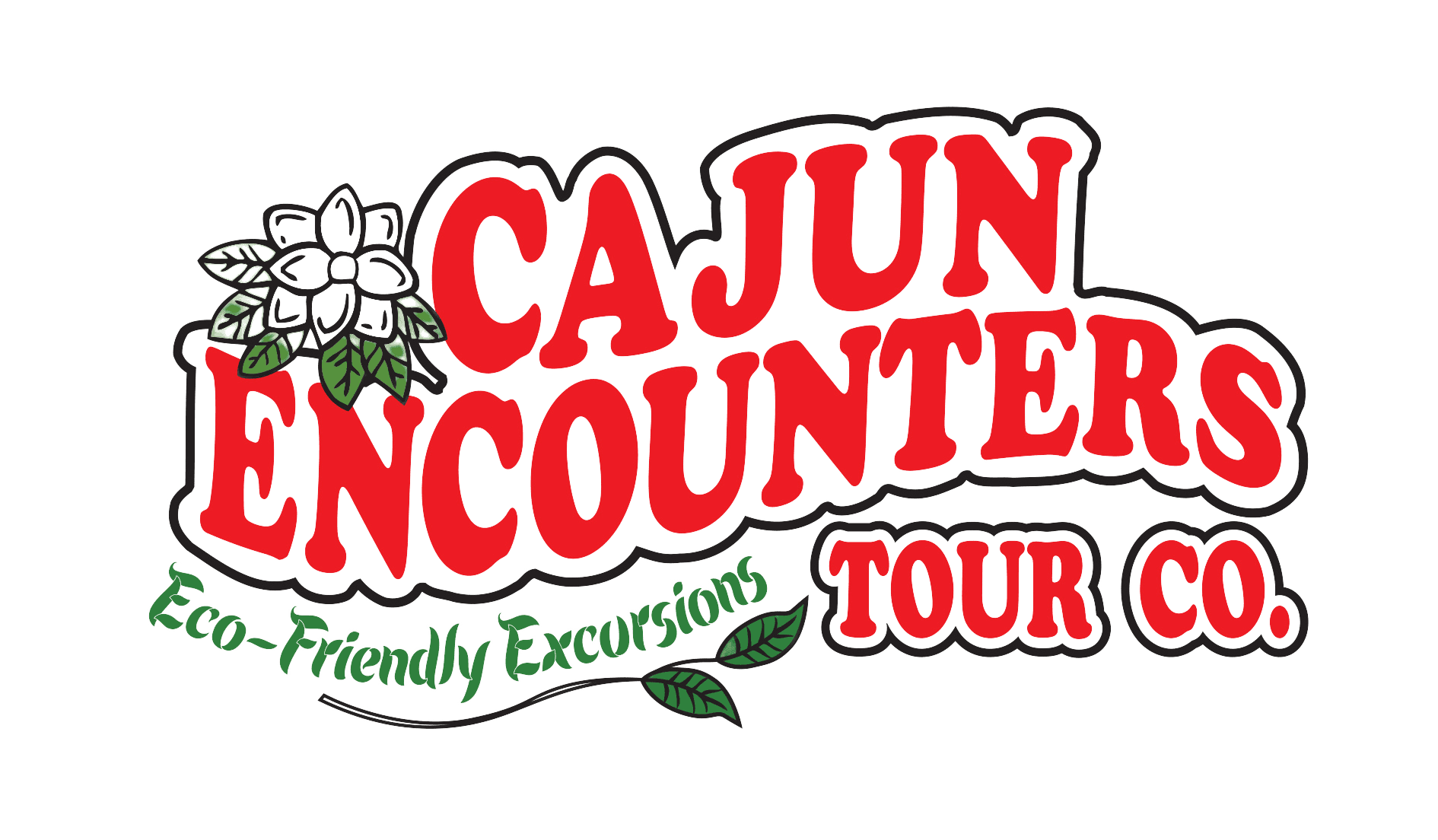
why book with us?
With over 25 years of experience, you can confidently trust us to deliver an incredible and truly memorable adventure for you and your family every single time.
Your safety is our top priority at Cajun Encounters. We adhere to the highest safety standards and regulations, ensuring that all of our tours are conducted with your well-being in mind.
We offer multiple pickup locations around New Orleans, including the most popular spots and hotels. This ensures that starting your journey is as easy and hassle-free as possible.
Book your next adventure today!

Laura & Oak Alley Tour
Includes Deluxe TransportationExplore the captivating histories of two iconic Louisiana plantations on our Laura and Oak Alley tour. At Laura Plantation, delve into rich Creole heritage and resident stories. Then, visit Oak Alley Plantation, with its stunning oak canopy and grand “Big House.” This tour offers an unforgettable glimpse into the region’s diverse cultural and architectural legacy.

Oak Alley Plantation Tour
Includes Deluxe TransportationExperience Louisiana’s most renowned plantation and delve into its rich history on our Oak Alley Plantation tour. Travel in comfort aboard our luxurious buses, featuring multiple convenient pickup locations throughout New Orleans. Let us take you on an unforgettable journey to this iconic estate, where the past comes to life amidst stunning landscapes and timeless architecture.

Whitney Plantation Tour
Includes Deluxe TransportationDiscover the profound history of Louisiana’s Whitney Plantation on our immersive tour. Travel in comfort aboard our luxurious buses, featuring multiple convenient pickup locations throughout New Orleans. Let us guide you to this historic estate, where the stories of the enslaved come to life through powerful exhibits and preserved structures.
History Of Laura Plantation
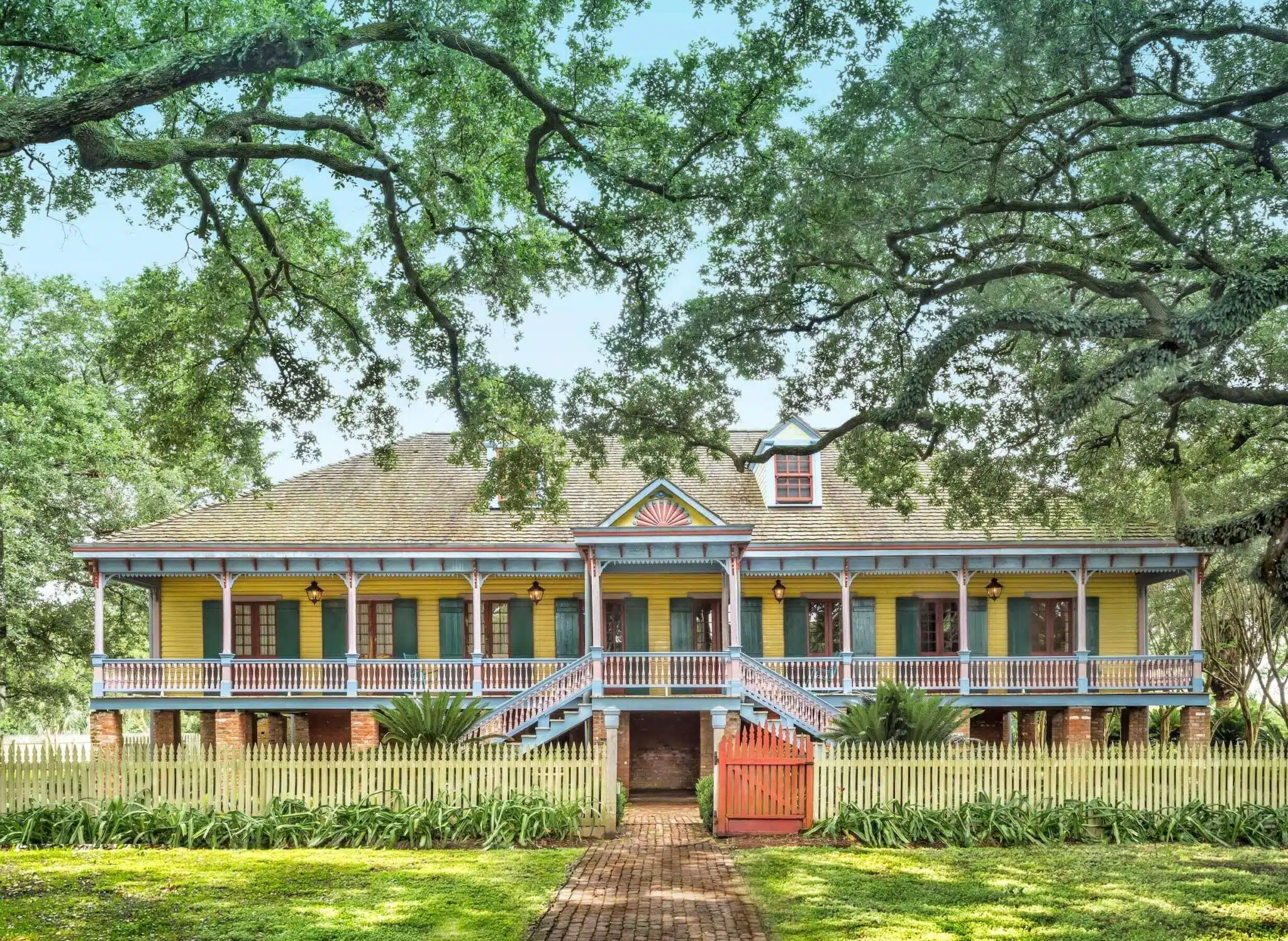
Laura Plantation, located in Vacherie, Louisiana, is one of the most well-documented plantations in the Southern United States. Established in 1805 by Guillaume Duparc, a French naval veteran, Laura Plantation initially encompassed 12,000 acres of land along the Mississippi River. Duparc utilized enslaved labor to cultivate sugarcane, a lucrative crop in the region. Following Duparc's death in 1808, his widow, Nanette Prud'homme Duparc, and later their daughter, Élise Duparc, managed the plantation. This matriarchal management continued to define Laura Plantation's operations for many years, a distinctive feature among Southern plantations.
The plantation house, completed in 1805, is a classic example of Creole architecture, characterized by its raised brick basement, expansive galleries, and brightly colored exterior. It was built using local cypress wood and features a symmetrical facade with dormer windows and a hipped roof. The house's interior was designed with French and Creole influences, showcasing elegant woodwork, detailed paneling, and high ceilings.
Laura Plantation's history is notable for its extensive documentation of the lives of both the owners and the enslaved people who lived there. The plantation's historical records include the memoirs of Laura Locoul Gore, the great-granddaughter of Guillaume Duparc. Her memoirs, written in the early 20th century, provide a vivid account of life on the plantation, detailing both the personal and business aspects of running such an enterprise.
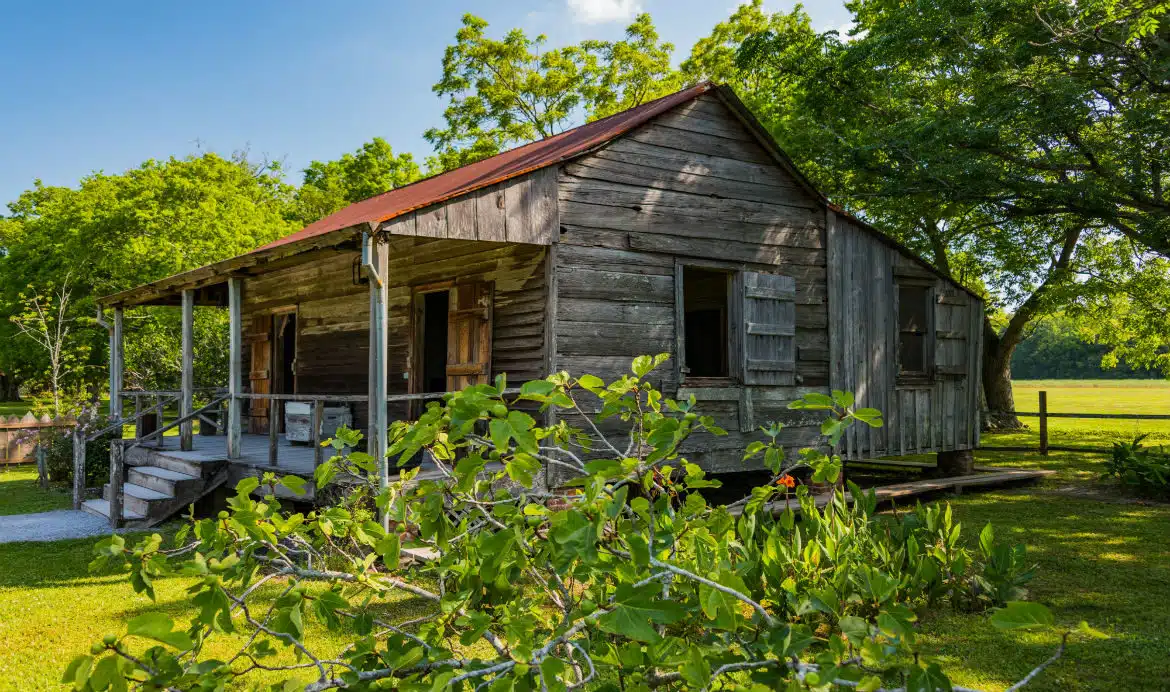
A preserved wooden cabin offering a glimpse into the lives of enslaved individuals who lived and worked on the plantation.
One of the most significant aspects of Laura Plantation's history is its role in preserving and documenting Creole culture. The plantation operated under French Creole customs, which differed significantly from the Anglo-American practices of other Southern plantations. These differences were reflected in the plantation's language, cuisine, social customs, and management style.
In 1891, Laura Locoul decided to sell the plantation, marking the end of over 80 years of Duparc family ownership. The new owners, the Waguespack family, continued to cultivate sugarcane but eventually sold the property in the late 20th century. The plantation then transitioned from a working agricultural site to a historical landmark.
Today, Laura Plantation is a well-preserved historical site open to the public. It offers guided tours that explore the rich and complex history of the plantation, focusing on the lives of both the plantation owners and the enslaved people. Visitors can explore the main house, the gardens, and the original slave quarters, which provide a sobering insight into the conditions and lives of the enslaved workers.
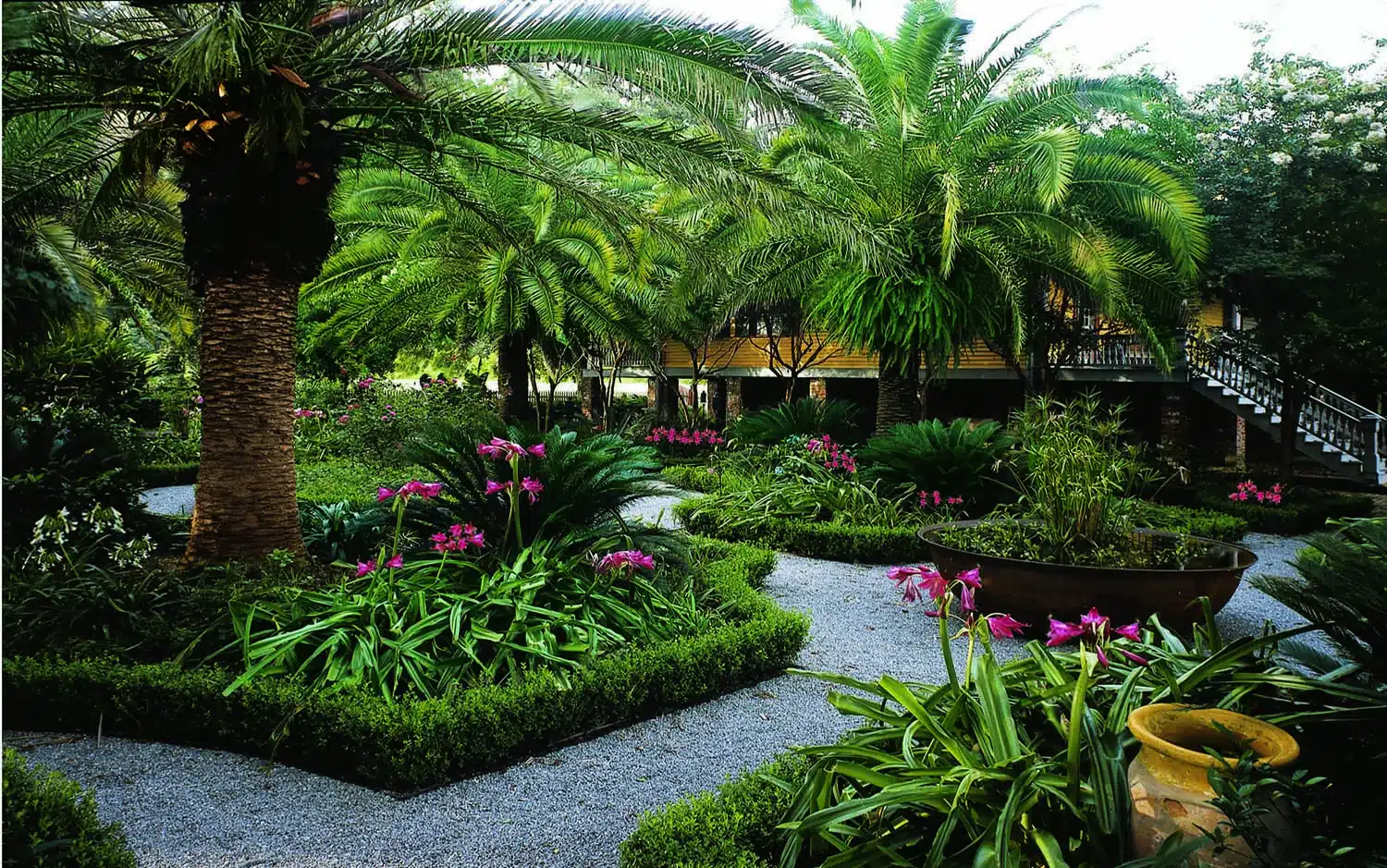
Vibrant gardens featuring lush palm trees, colorful flowers, and gravel pathways, creating a serene and picturesque setting.
The plantation is also significant for its connection to the Br'er Rabbit tales, which were recorded in the 1870s by Alcée Fortier, a Louisiana folklorist. These stories, told by the enslaved people of the plantation, are a crucial part of African American folklore and have had a lasting impact on American culture.
Laura Plantation's commitment to historical accuracy and cultural preservation has made it an important site for understanding the diverse history of Louisiana and the broader Southern United States. Its extensive records and personal memoirs offer a unique window into the past, making it a valuable resource for historians, researchers, and visitors interested in the complex history of American slavery and Creole culture.
Laura Plantation Tour Image Gallery


